Forget urbanisation. Does the future of work lie out in the sticks? Philipp Hentschel thinks so. For the past four years, he’s been luring his fellow digital nomads to the wilds of his native Brandenburg with the promise of fresh air, creative inspiration, new forms of cooperation – and lightning-fast wifi.
Words
Photos
Will JivcoffThe first thing you see are the zebus. Resembling miniature cows but with angular humps on their backs, they’re a curious lot, following your movements from behind the farmhouse fence as you walk towards the open gates of Hof Prädikow.
Inside, the sprawling estate appears straight out of a dystopian fairytale. Apple, walnut, and chestnut trees grow wild against crumbling red-brick buildings: the remains of barns, living quarters, a blacksmith’s, a bakery, and an industrial alcohol distillery. The trees enclose a lush, central courtyard dominated by a house-sized geodesic dome.
This, if the 35-year-old digital project manager Philipp is to be believed, is the future of Brandenburg.
'We’ll be up to 100 people who will find a lot of synergies and it’s going to be a very inspiring place where we all work together.'
Berliners love the rural region surrounding the German capital for its abundant lakes, leafy hiking trails and quaint villages. But as a place to live, Brandenburg’s reputation has long been dismal, marred by bleak winters, zero nightlife, and an ageing population with a right-leaning voting record.
That’s beginning to change. Fed up with the high rents and cramped quarters of the capital, forward-thinking Berliners are heading to the countryside, laptops in tow, and opening co-working spaces, studios, and workshops. And where you find these projects, you’ll usually find Philipp. A Brandenburg native himself (he grew up in the northeastern municipality of Eggersdorf), Philipp has the casual bearing and utopian vocabulary of a typical start-upper, but with a serious pragmatic streak. In his late teens, after an internship with a failed dot-com company, he decided he’d never be anyone’s employee again – and he never has. In 2010, when Philipp realised he was sick of going it alone, he founded a hybrid co-working space and freelancers’ collective. Eight years later, Welance has a multidisciplinary team and a prime location near Kotbusser Tor in Kreuzberg.
A few years ago, Philipp began to wonder: ‘What if there was something like Welance, but in my hometown?’ That was around the same time that he met Julianne Becker, an American communications consultant. She and her partner Janosch Dietrich had just come up with the idea for Coconat, a ‘workation retreat’ that would combine all the perks of a start-up office with the pleasures of the countryside, and were on the hunt for like-minded collaborators.
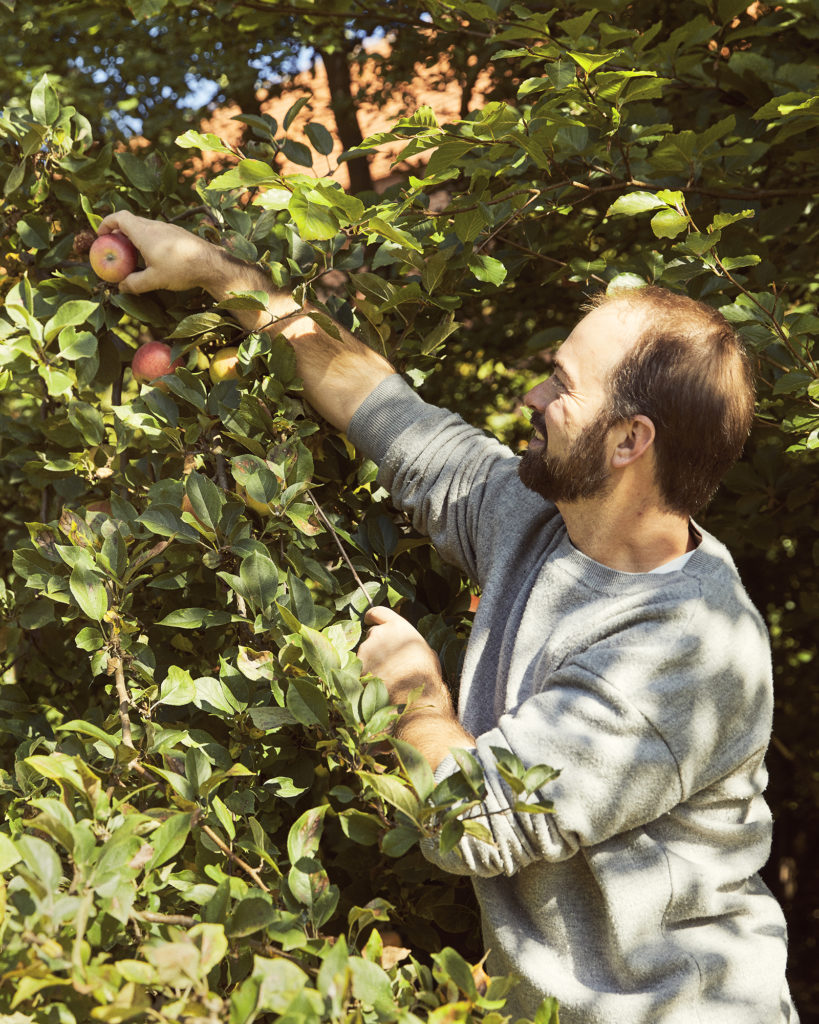

Not long afterwards, their four-person team began to scour Brandenburg for inspiration – and realised they were far from alone. Nestled in between sleepy villages and farms, they found workshops, studios, and experimental communes. One of the oldest, Gut Stolzenhagen, was founded by former East Berlin squatters in the late 1990s and now houses the arts centre Ponderosa. ‘We thought we were doing something new, but then we started to see all these other projects – and then we understood that Brandenburg was always full of creative people.’
In fact, Brandenburg has been an escape for Berlin’s artists, musicians and authors since ‘at least the 18th century,’ Philipp says. But it was only with the 2015 founding of Coconat – an amalgam of ‘community and concentrated work in nature’ – that the start-up crowd began to consider escaping to Brandenburg as a real possibility.
Bolstered by over 100 volunteers, the team fixed up an old estate near the historic spa town of Bad Belzig, fitting it out with desks, state-of-the-art conference rooms, a café, and a sauna. It’s now available for corporate retreats, overnight stays and month-long ‘co-living’ stints. ‘We don’t rent rooms to people who’re just cycling around, really on vacation,’ Philipp says. ‘People go there to work without the distraction of the city – and have some vacation on the side.’ The entire site, including the newly built permaculture garden, has wifi reception. ‘Funny side note: wifi in the country is the same speed as in the city, but since you don’t have to share the bandwidth with as many people, it’s super fast.’
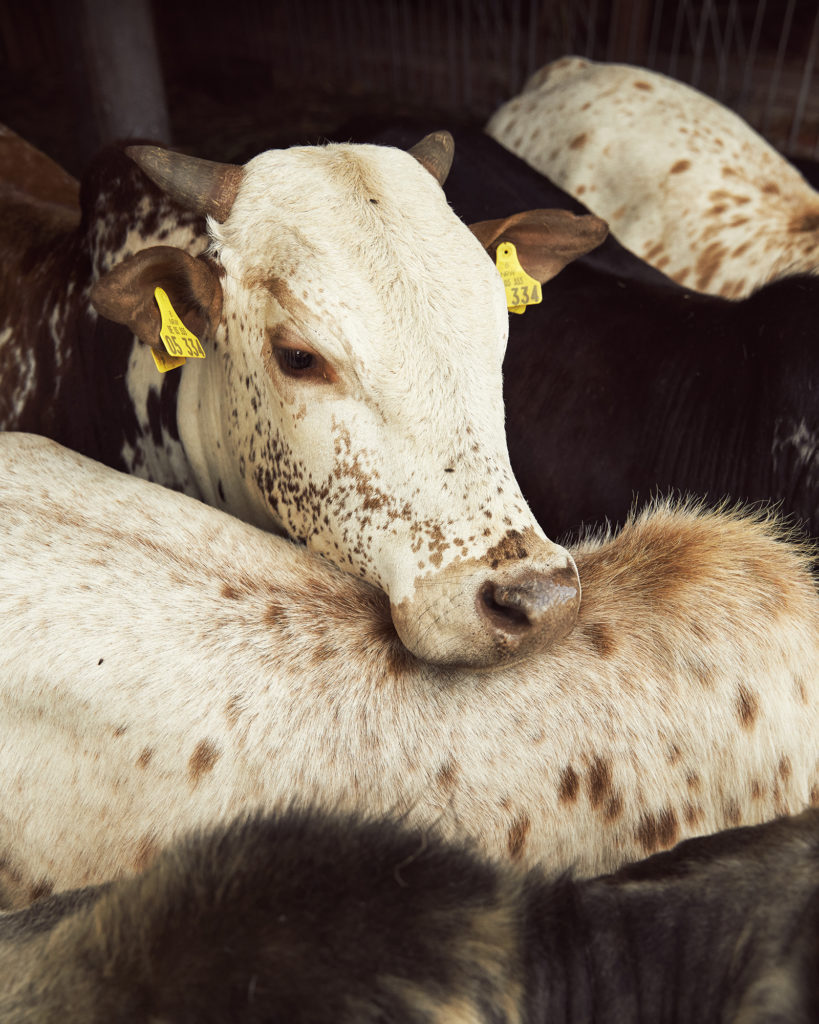
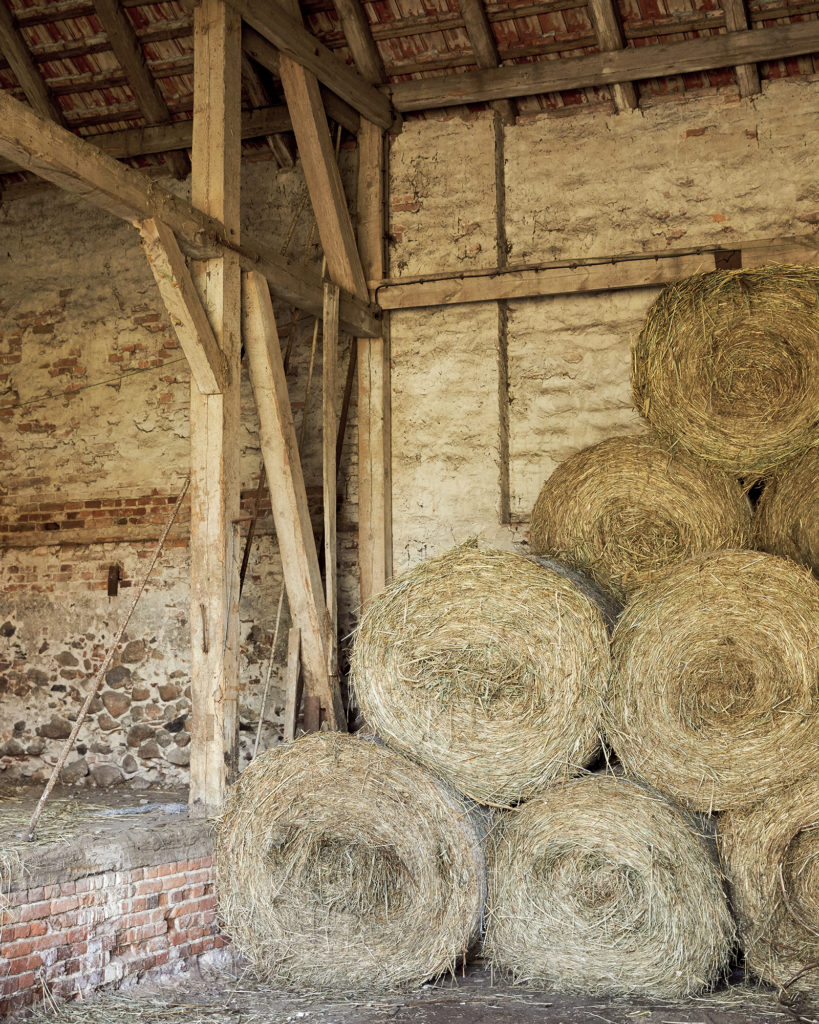
Philipp’s vision for the countryside goes far beyond brief getaways at Coconat. Currently based in Friedrichshain, he’s planning a permanent move to Brandenburg with his girlfriend Susan Schulze and their young son Mateo – and they’re taking a whole cadre of Berliners with them.
That’s where the zebus come in. They’re owned by Ben Schaarwächter, an erstwhile Berliner who moved to the northeastern village of Prädikow five years ago. It was Schaarwächter and his partner Julia Paas who first thought of revitalising the 9.5-hectare Hof Prädikow, a 19th-century farm and manufacturing business that was once central to village life but, like so much else in Brandenburg, was abandoned following reunification.
'In the city, you no longer have the space to try something new. In Brandenburg it’s cheaper to fail.'
Enter Philipp, as well as the Berlin housing association Selbstbau and the non-profit Trias foundation, and Hof Prädikow is now a long-term, multi-million-euro project set to permanently change the village and, most likely, Brandenburg itself. In its finished form Hof Prädikow will encompass cooperative housing, offices, studios, a café, and a guesthouse, at minimum. Organic farming, 3D printing, and metallurgy are just a few of the other possibilities Philipp has in mind.
Through word of mouth and early PR, the team have found about 45 people who are willing to buy into the housing co-op, help with renovations, and contribute ideas. Joining the project takes money and trust. Selbstbau is still inspecting the buildings, and it could be years before anyone moves in. The group is, by Philipp’s admission, ‘quite homogenous: mostly German, between 35–45 years old. I do wish we were more diverse, but in a way it makes it easier to start because we all want the same thing. In the future we will integrate places for disabled and retired people.’
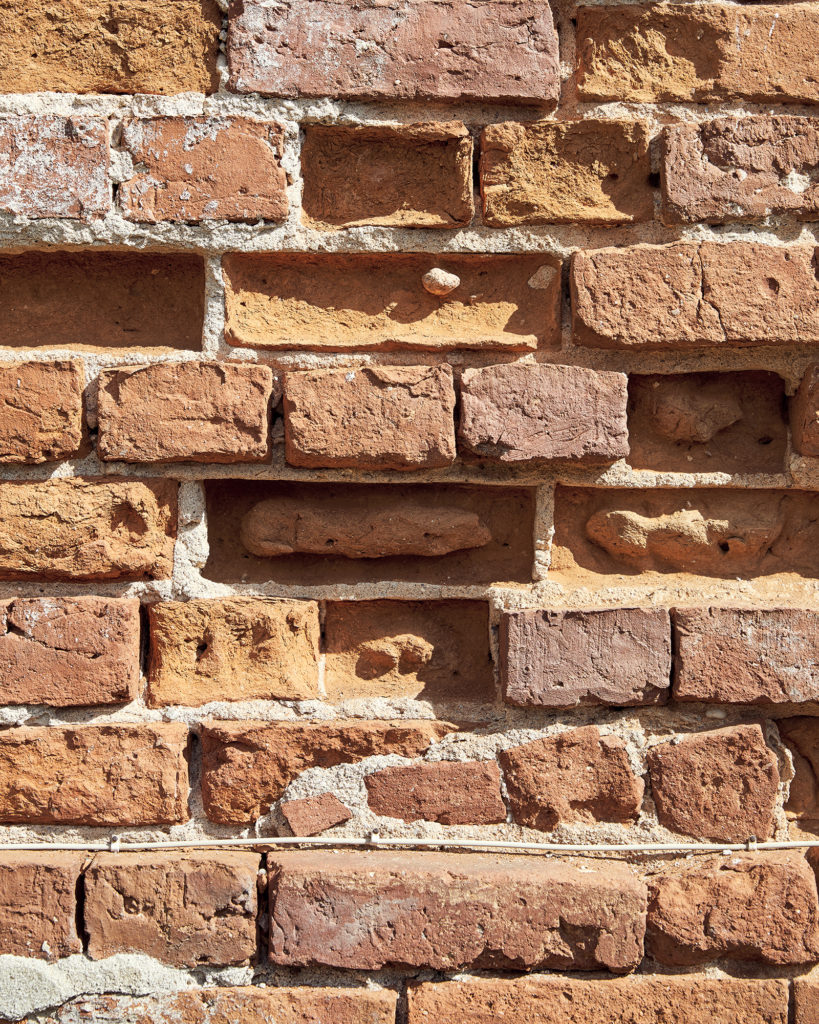
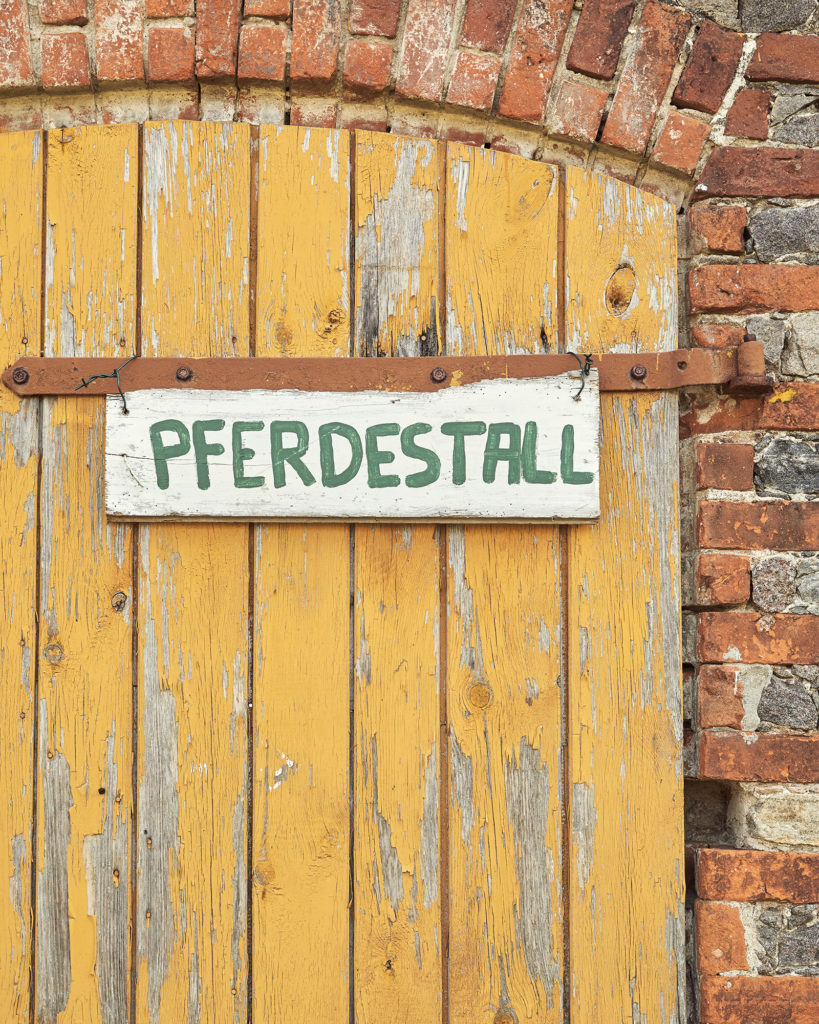
For Philipp, the communal aspect is a way to combat that most dreaded aspect of rural living: isolation. ‘My “romantic” vision of the countryside has never been me alone on a farm. It’s more like we’ll be up to 100 people and we’ll find a lot of synergies and it’s going to be a very inspiring place where we all work together,’ he says with a smile. ‘All the things we want to do require a lot of people, from running a guesthouse to building a shop. My idea is also that 40% of the buildings will be public. Different groups will come in and out, so I won’t always be surrounded by the same people – that’d be horrible!’
This desire for community led Philipp to found Stadt Land Work, a Meetup group designed to connect Berliners with existing countryside projects or start their own, as well as Kreativorte Brandenburg, a digital guide to Berlin’s new rural co-working scene. To research the latter, Philipp, Schulze, and their son recently piled into a camper bus for a four-week summer road trip around Brandenburg, documenting the results on their website and (naturally) Instagram.
The results are as varied as they are photogenic. There’s Verstehbahnhof, a 3D-printing workshop built into the Fürstenberg train station and run by former Wikileaks hacktivist Daniel Domscheit-Berg. There’s the Stechlin Institut, a bucolic resort near the crystal-clear Lake Stechlin that welcomes artists and non-profit initiatives for intensive brainstorming sessions. There’s Havelprater, a co-working space in an old church by the Havel river that offers accommodation and its own brand of coffee. And that’s not the end of it; there are 22 entries on the site so far, with a new one added every fortnight.
Philipp calls these Kreativorte (creative spaces), but most bear a marked difference to the hippy communes and artist residencies of yore. ‘With this current wave, the people are more pragmatic,’ says Philipp. ‘The city is getting more and more dense and expensive, so more and more people are considering moving to the countryside – and with the possibilities of remote work and digitalisation, it’s getting way easier to start something there.’
The draw, Philipp points out, is not only the fresh air. ‘It’s the space,’ he reflects. ‘In the city, you no longer have the space to try something new. [In Brandenburg,] it’s cheaper to fail. You don’t have to have a proper business model from day one.’
In his travels, Philipp has met many Brandenburg converts who supplement their digital work with endeavours that they would never have dared to try in Berlin: coffee roasting, organic gardening, arts and crafts. At Hof Prädikow, Philipp hopes to become one of them. ‘My personal dream would be cheesemaking, but I could also imagine being a part-time barista, meeting all kinds of people and sharing stories. I’ve never been good at woodworking, but maybe that’s going to happen – I’m excited to have these possibilities.’
'The city is getting more dense and expensive, so more people are considering moving to the countryside.'
As his cohorts continue to pour into Brandenburg, an obvious question arises: what about the people already living there?
‘It takes a lot of time to build trust,’ says Philipp. ‘The people in Brandenburg have seen so many people from Berlin who go there and, after one or two years, say, “Ah, it’s too dark in winter, I’m moving back to the city.” They’re sceptical for sure. But if you prove yourself, if you’re there for a couple years and you’re still supportive, then they welcome you with open arms.’
He admits that some people – namely, white Germans – might be welcomed more readily than others. ‘But the only thing we can do is go there, invite our friends, and show the people living there that the world is colourful and foreigners aren’t as bad as they thought.’
The Coconat workation retreat
At Coconat, the team have always taken care to engage with the surrounding village of Klein Glien and the town of Bad Belzig. ‘Juliane [Becker] and her husband moved into the village a while ago,’ Philipp says. A handful of Bad Belzig residents now come to work at Coconat, as do residents from the nearby communes.
In spring 2018, Coconat’s presence helped Bad Belzig’s designation as a ‘smart village’ by the state of Brandenburg, and the town received an award to develop new technology meant for rural areas. (In a Tagesspiegel article, Becker’s husband Janosch Dietrich mentioned an e-health portal for elderly residents and digital optimisation of Bad Belzig’s irregular bus schedule). That’s all well and good, but can a move-in by the likes of Google be far behind?
‘Yeah, I’m pretty sure this will happen,’ sighs Philipp. ‘It happened with co-working – it started with a grassroots scene, and then we got all the big spaces. Now we have a grassroots scene in Brandenburg, and I wouldn’t be surprised if soon we get the bigger players.’
Gentrification may not pose the same threat to Brandenburg’s villages, where most residents own their homes, as it does to vulnerable renters in Berlin. But it’s still on Philipp’s mind. ‘In some cases, it’s actually good for the people living there: if they want to sell their property, they’ll get a good price because there’s a hotspot next to it. It’s different for the suburbs connected with the S-Bahn, where the prices are already rising like crazy. In the future, we might join with a research institute to have a look at this phenomenon. But right now, our focus is on building the community.’
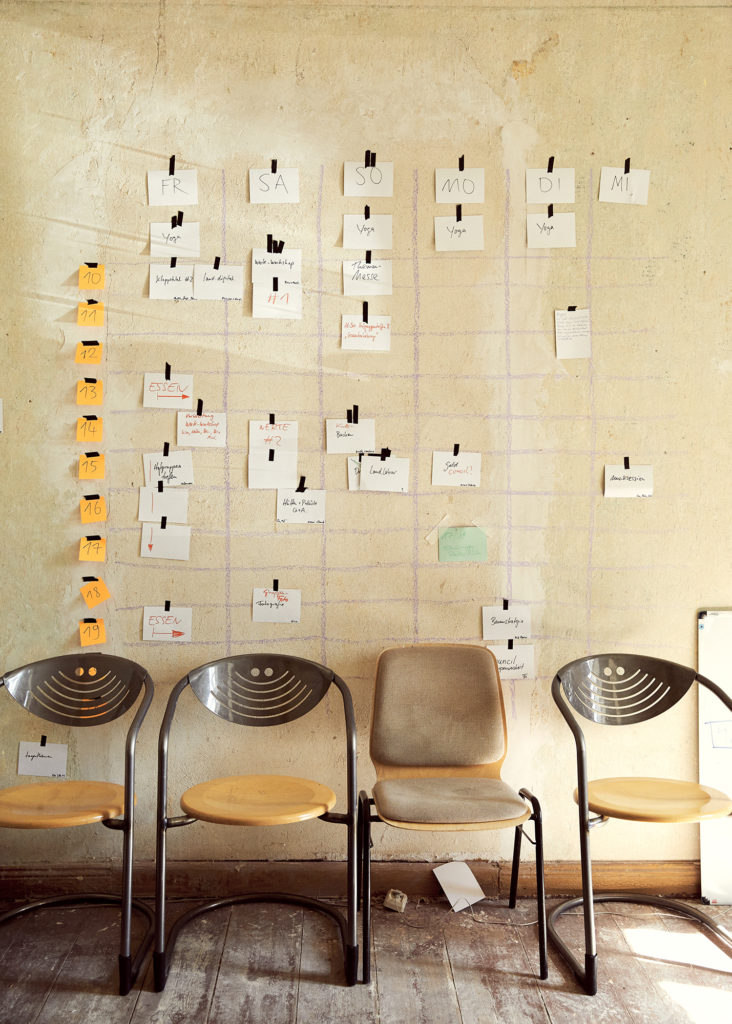
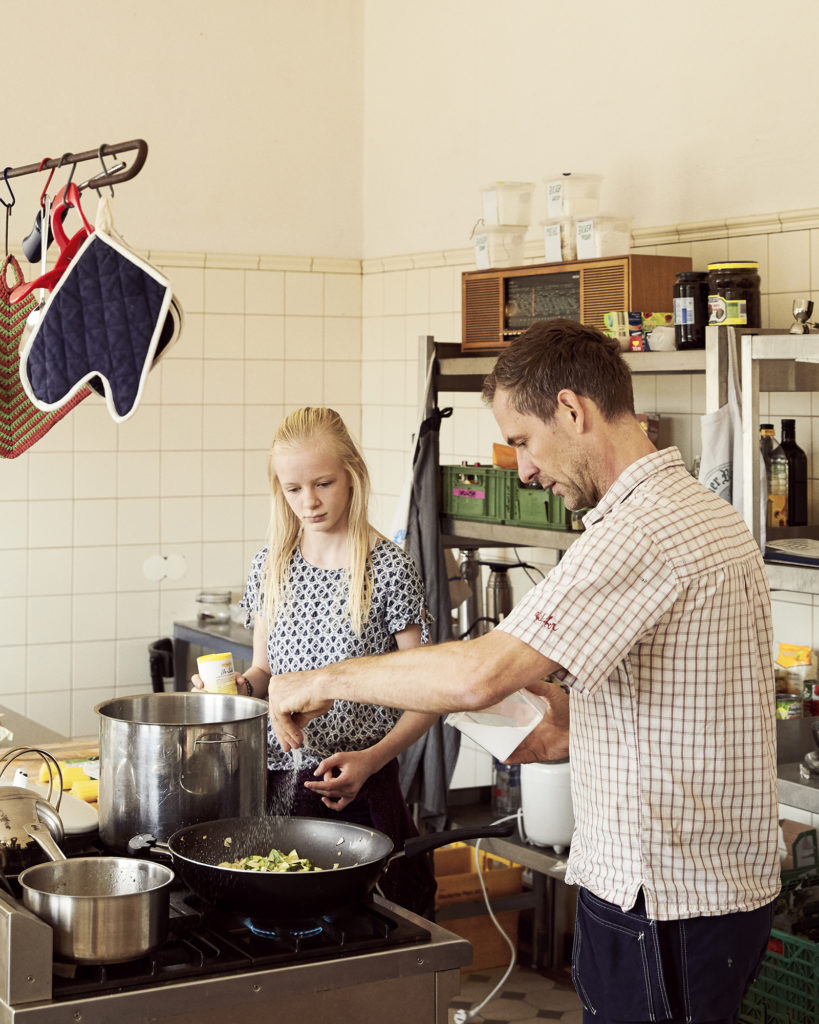
Just one room at Hof Prädikow hints at what the estate will eventually become. The back of the old Schweizerhaus (farmers’ quarters) has been fitted with desks, printers and, as of recently, an internet connection. Rays of light filter in from the courtyard, falling on index cards tacked to bare walls – it’s the kind of look that co-working spaces in Berlin shell out thousands for. Paas is there now, working on Pampa, a ride-sharing app for the region that will, among other things, help cover the 10km distance between Prädikow and the nearest S-Bahn station.
Later in the day there’ll be a Dorffest, where villagers will mingle with future residents over coffee and cake, and then drinks. Because the barn that will someday house their apartment is currently occupied by hay bales and dust bunnies, Philipp and his family will sleep at Schulze’s parents’ house a few villages over – which isn’t far from Eggersdorf, Philipp’s hometown. When considering the dizzying range of options opened up by digital nomadism, it’s comforting to think that this, too, can be the future: settling down near your relatives and friends, raising a child with the help of a village, maybe learning how to make cheese.
‘If there was a project like this in every village – that’d be cool, wouldn’t it? I think that would be a good goal,’ Philipp smiles. From the way he says it, it’s clear that it’s not a matter of if, but when.
Find out more information about Hof Prädikow at hof-praedikow.de
